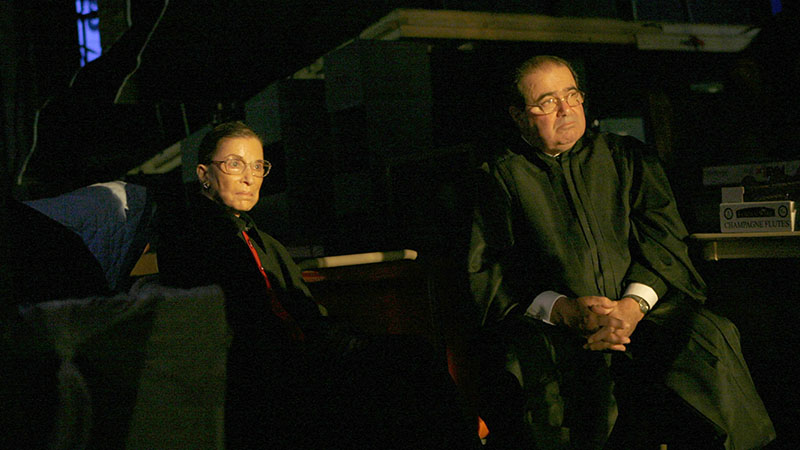Inaugural Scalia–Ginsburg Colloquy Examines Recent Affirmative Action Decision

Two distinguished constitutional law scholars will launch the Scalia–Ginsburg Colloquy with a civil discussion of the U.S. Supreme Court’s recent decision in the affirmative action case, Students for Fair Admissions Inc. v. President & Fellows of Harvard College
The event will take place via Zoom on Tuesday, July 11 at 7:00 p.m. EDT.
Theodore M. Shaw, the Julius L. Chambers Distinguished Professor of Law and director of the Center for Civil Rights at the University of North Carolina School of Law, and Harry G. Hutchison, senior counsel and director of policy for the American Center for Law and Justice and a former professor at Scalia Law, will analyze the Court’s holding at a virtual forum. David E. Bernstein, University Professor of Law and executive director of the law school’s Liberty & Law Center, will moderate the colloquy. Bernstein is an expert on affirmative action and author of the recent book, Classified: The Untold Story of Racial Classification in America.
The idea for the colloquy came from the strong friendship between the late U.S. Supreme Court Justices Antonin Scalia and Ruth Bader Ginsburg—a friendship as legendary as their sharp disagreements on the bench. Guided by their example, the law school, with the support of the Scalia and Ginsburg families, established the inaugural Scalia–Ginsburg Colloquy, which will bring together distinguished scholars for a series of substantive—yet civil—discussions of both sides of important legal issues.
“In addition to its intrinsic value, this colloquy will show how important it is to balance advocacy with professionalism and civility,” said Ken Randall, dean of the law school. “These traits are essential for effective lawyering but often in short supply today.
“Because of these Justices’ fierce commitment to their views and their close personal relationship, we can think of no better name for this new series.”
Helen M. Alvaré, professor and associate dean for academic affairs, is organizing the colloquy. “Our first event centers on the outcome of the Harvard and University of North Carolina affirmative action cases before the Supreme Court,” she said. “The impact of this holding is likely to have the most significant impact on higher education in nearly half a century.” At least two colloquies are planned for each academic year.
Jane C. Ginsburg, the Morton L. Janklow professor of literary and artistic property law at Columbia Law School, said that the colloquy is a fitting tribute to her mother. “She once wrote that if her friendship with Justice Scalia ‘encourages others to appreciate that some very good people have ideas with which we disagree, and that, despite differences, people of goodwill can pull together for the well-being of the institutions we serve, I will be overjoyed.’” Professor Ginsburg added that she looks forward to the inaugural event and the lively discussion that is sure to occur.
Eugene Scalia, a partner at Gibson Dunn and former U.S. Secretary of Labor, agreed. “My father valued Justice Ginsburg’s friendship in part because of their differences, not despite them. He knew that his ideas and manner of expressing them benefited from her thoughtful responses. He would be touched by this series dedicated to their disputatious friendship.”
The colloquy is in keeping with the law school’s promotion of civil discourse. In the past academic year, the school has sponsored discussions of varying perspectives on abortion, the Second Amendment, and the preservation of democracy. “The Law School expects that this new series will honor the spirit of these two great Justices while promoting robust and civil debate,” Randall said.